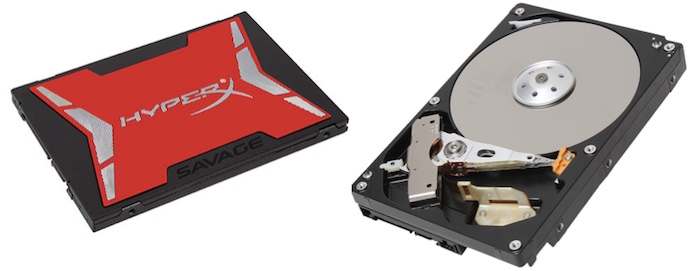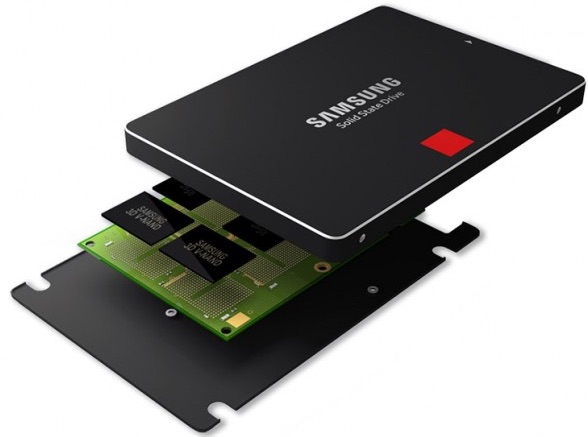
Storage Capacity vs. Speed vs. Cost
In any PC, storage is a balancing act between capacity, speed and cost. In a gaming PC—where software installs can be huge and speed is extremely important—that balancing act can be even more critical.
Traditionally, PCs have used hard drives. These are the mechanical spinning platter drives that for decades provided the optimal balance between storage capacity and cost. When it came to a gaming PC, the biggest move was usually upgrading from a 5400 rpm hard drive to a much faster 7200 rpm hard drive, and from there it was a question of how much capacity you needed or could afford.
Technology Has Moved Forward
The situation in recent years has become a little more complicated.
PC games have continually pushed the limits of computing technology. With current generation CPUs and video cards, 4K widescreen monitors and ultra-fast Gigabit Wi-Fi, games have reached a new level of realism. However, those cinematic 4K cut scenes and ultra high definition graphics come at a cost: more storage space than ever is needed, while load times mean the faster your drive is, the less time you’ll sit around waiting.
Looking at some of the more popular PC gaming titles of the past few years, you can see how quickly the storage requirements add up, and how fast the available space on a drive can disappear. Titanfall, one of the big releases for 2014 uses up over 60GB of drive space when you include DLC. Battlefield 4 from 2013 wasn’t far behind, eating up 59GB with DLC. Bioshock Infinite was well over 40GB.

So that’s the storage requirement side of the equation. Bigger and faster has been the mantra.
Fortunately, mass storage technology has also advanced. SSDs (solid state drives) became mainstream and represented one of the single biggest performance improvements when using a PC. SSDs have no moving parts and they are so fast, boot times dropped from a minute or more to 10 seconds, while the time needed to write or read large volumes of data dropped to a fraction of the time needed by a traditional hard drive. For gaming, that meant faster installs and a lot less time waiting for games and cutscenes to load.
The problem was, SSDs were expensive—prohibitively so in large capacities—leaving many gamers to choose between speed or mass storage. Manufacturers responded with hybrid drives that combined a small SSD with a traditional hard drive. The SSD is dedicated to the operating system and key frequently used applications, while the hard drive provides inexpensive mass storage.
 SSDs Are More Affordable Than Ever, Even in Large Capacities
SSDs Are More Affordable Than Ever, Even in Large Capacities
The good news for gamers (and all PC users for that matter) is that as they have become more popular and mass production has ramped up, SSDs have steadily dropped in price while speed has continued to increase.
I paid something like $500 for a 240GB SSD four years ago. For half that price today I can pick up an SSD like the Samsung 850 EVO that’s faster and offers twice the storage capacity. Even better, upgrading to an SSD cuts down on power use, heat generation and operating noise —all bonuses in a gaming PC.
You May Not Even Need to Make a Choice…
Plug-in’s Syd Bolton pointed out that he’d rather have a fast drive than a big drive any day when equipping a gaming PC. I agree with that sentiment, but with the dropping prices of SSDs, we’re fast approaching the point where gamers no longer have to make that choice.
Be sure to check out other posts in our best PC gaming experience series, including , and choosing a monitor.



